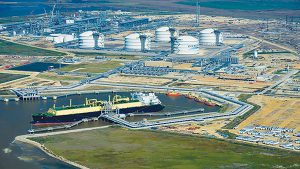Bloomberg
European natural gas prices headed for a third straight weekly decline as fears over further disruptions to Russian supplies waned.
Benchmark futures fell as much as 4.3%, hitting the lowest level since the start of the war in Ukraine. Russian shipments are expected to remain stable, even as flows through one cross-border point in Ukraine remain cut off because of the conflict.
Concerns over a payment dispute — the biggest headache for the market for months — have also eased with major European buyers finding ways to meet Moscow’s demands for rubles without breaching EU sanctions. The standoff had earlier resulted in supply being cut off to Poland, Bulgaria and Finland, but companies like Italy’s Eni SpA and Germany’s Uniper SE have said they expect to keep buying Russian gas.
The front-month gas contract, which expires on Monday, shed 1.7% to 84.51 euros per megawatt hour at 12:54 pm in Amsterdam. The July contract dropped 1.4%. UK gas for June delivery gained 1.1%.
Europe has also boosted imports of liquefied natural gas to tackle any supply issues. Shipments from import terminals in the continent have surged to the highest levels in five years for this time of year, and at least 10 cargoes from the US are expected to arrive in the first 11 days of June.
More of the liquefied fuel may be available for Europe as flows to China, the world’s biggest LNG importer, are expected to be limited. Consumption in the Asian nation has waned due to ongoing Covid-related lockdowns and demand destruction due to high prices, which is “a big relief for global gas markets,†consultant Inspired Energy said in a note.
However, demand is likely to rise elsewhere in Asia, drawing more cargoes eastwards in late-July and August, said Ciaran Roe, global director for LNG at S&P Global Commodity Insights. The higher competition could mean that Europe will need to pay a premium to attract cargoes.
 The Gulf Time Newspaper One of the finest business newspapers in the UAE brought to you by our professional writers and editors.
The Gulf Time Newspaper One of the finest business newspapers in the UAE brought to you by our professional writers and editors.
